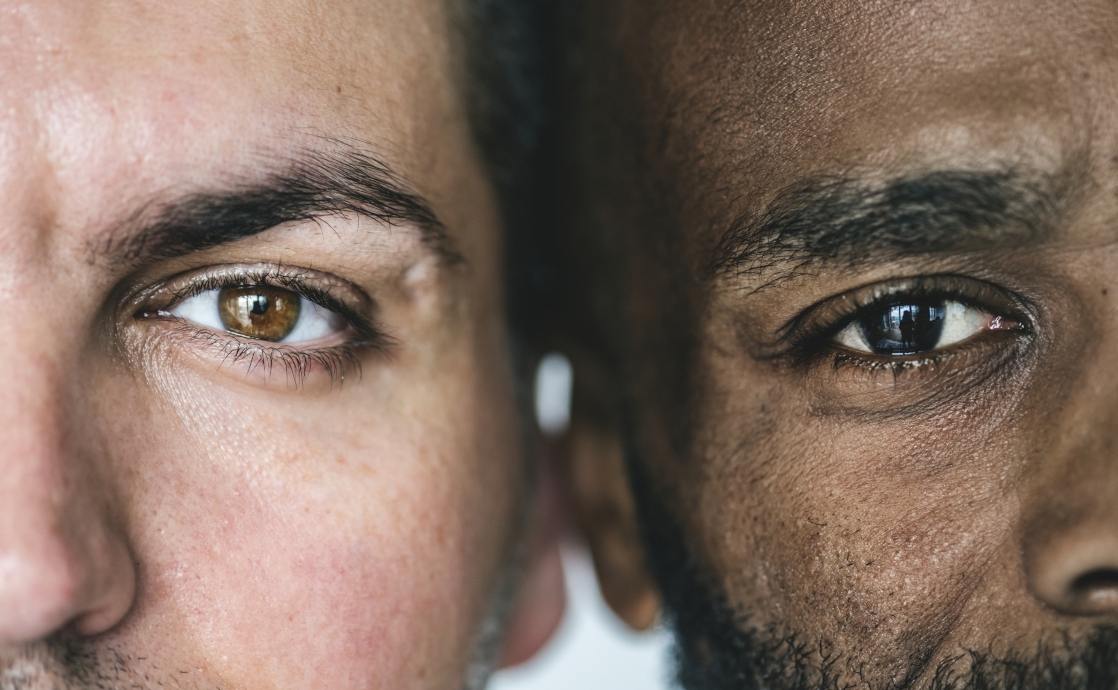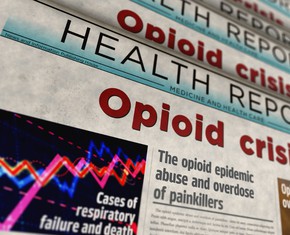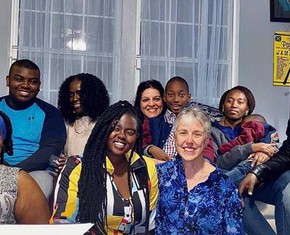The views expressed in our content reflect individual perspectives and do not represent the authoritative views of the Baha'i Faith.
Overcoming trauma and improving society requires healing, but toxic masculinity has historically deprived men of access to it.
I recently became a member of a black-owned wellness studio that offers yoga, meditation, therapy, acupuncture, Reiki, and other services focused on improving the well-being of its members. Yesterday, after my yoga class, I got into a conversation with Darian Hall, who co-founded the wellness space with Elisa Shankle. The story and logic behind opening HealHaus has received much social media attention, and if you’re curious you can read a bit about it here.
Our conversation got me thinking more deeply about how certain demographics tend to hover on the outskirts of the conversations about healing. Men specifically come to mind. Toxic masculinity creates a barrier for men to access healing, and the hyper-masculine standards forced on black and brown boys create an even thicker barrier between them and many tools that can promote internal healing—like meditation, therapy, or retreating to nature.
Baha’u’llah, the founder of the Baha’i Faith, said:
The world in the past has been ruled by force, and man has dominated over woman by reason of his more forceful and aggressive qualities both of body and mind. But the balance is already shifting; force is losing its dominance, and mental alertness, intuition, and the spiritual qualities of love and service, in which woman is strong, are gaining ascendancy. Hence the new age will be an age less masculine and more permeated with the feminine ideals, or, to speak more exactly, will be an age in which the masculine and feminine elements of civilization will be more evenly balanced. – Baha’u’llah quoted by J.E. Esslemont, Baha’u’llah and the New Era, p. 149.
Toxic masculinity thrives on sexism, and keeps boys and men from strengthening their innate feminine virtues. Women face much violence at the hands of men who neglect their sense of love, their sense of service, or their intuition—and men face much violence at the hands of other men who neglect their more feminine qualities. As long as men can’t access the tools and spaces they need to heal from toxic masculinity, the insidiousness of sexism and gender-based violence will continue.
Many men don’t think they have much healing to do, and feel that they have dealt sufficiently with the trauma life threw their way. This might be true for some, but with the conditions that encourage young men to ignore all emotions outside of anger, many emotional disturbances go unaddressed and even unnoticed. While boys and men might ignore sadness, fear and trauma, their high rates of mental health diagnoses and disproportionate levels of violence tell us that these ignored feelings still have an impact on them.
For example: men represent 75% of all alcoholism diagnoses—and 75% of all suicides. But evidence indicates that men utilize mental health services at a much lower rate than women.
Other men might just assume that they don’t need spaces to heal, because they have just been blessed with little personal hardship to begin with. Even in the cases where boys have grown up with stability, comfort, and general happiness around them, there is work to do. Healing doesn’t always have to be based on our own individual experience: it can—and should—also focus on addressing the unhealthy messages we subconsciously absorb from our social climate. Even if a person does well in our society, unjust and unhealthy messages plague our world, and even the best of us has to work to fix the damage these messages have had on them.
Abdu’l-Baha spoke of the interconnectedness that always affects us, for better or for worse:
… this endless universe is like the human body, and … all its parts are connected one with another and are linked together in the utmost perfection. That is, in the same way that the parts, members and organs of the human body are interconnected, and that they mutually assist, reinforce and influence each other, so too are the parts and members of this endless universe connected with, and spiritually and materially influenced by, one another. – Abdu’l-Baha, Some Answered Questions, newly revised edition, p. 285.
If we view one another as cells within the larger body of humanity, a body that clearly has some significant afflictions, we realize that even if these forces don’t seem to have hurt us directly, they have impacted us. We all need to purify ourselves of the toxicity in our bodies, both individually and collectively:
The body politic today is greatly in need of a physician. It is similar to a human body afflicted with severe ailments. A doctor diagnoses the case and prescribes treatment. He does not prescribe, however, until he has made the diagnosis. The disease which afflicts the body politic is lack of love and absence of altruism. In the hearts of men no real love is found, and the condition is such that, unless their susceptibilities are quickened by some power so that unity, love and accord may develop within them, there can be no healing, no agreement among mankind. Love and unity are the needs of the body politic today. Without these there can be no progress or prosperity attained. – Abdu’l-Baha, The Promulgation of Universal Peace, p. 171.
Materialism, the pressure to conform, and pervasive emphasis on the self all afflict harm on our well-being. Once we all situate healing within its collective context—recognizing that we don’t just heal for our own happiness and freedom, but also for the happiness and freedom of others—then we will move mountains.
















Comments
Sign in or create an account
Continue with Googleor